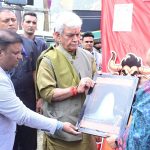In the realm of journalism, particularly in investigative reporting, there exists a sacred duty to uphold moral, professional, and ethical standards. Media serve as the watchdogs of society, tasked with uncovering truths, exposing corruption, and holding power to account. However, in fulfilling this duty, it is imperative that the media adhere to principles of fairness, transparency, and objectivity. The concept of “media trial,” wherein individuals are accused and judged in the court of public opinion without due process, stands in stark violation of these principles.
Unarguably the advent of social media and digital platforms has facilitated the rapid dissemination of information, sometimes at the expense of accuracy, context, and fairness. A disturbing trend has emerged wherein the media (social), driven by the pressure to break news first or garner attention, succumb to the temptation of sensationalism and abandon the principles of ethical reporting. For some time, we have witnessed in several reports, posts, video clips accusing a professional of corruption, negligence, and malpractice, where several ethical breaches are evident. Too often, we witness instances where individuals are portrayed in a one-sided manner; the media fail to verify the authenticity of the allegations before reporting or uploading video in unsupervised social media, thus risking defamation and reputational harm not only to the accused individual but on whole profession /als.
Secondly, by not seeking the perspective of the accused party or allowing them an opportunity to respond, the basic tenets of fairness and impartiality remain unaddressed. Thirdly, reporting should be done professionally so that it does not incite sensationalism in public describing a situation where unrestrained public are making defamatory and derogatory comments about a particular profession or group of professionals. Such behaviour can be harmful and unfair, as it unfairly tarnishes the reputation of an entire profession based on the actions of a few individuals or misguided perceptions. In such situations, it’s difficult to address these comments constructively and with integrity on unregulated social media. This could involve educating the public about the complexities and nuances of the profession, highlighting the positive contributions made by professionals, and addressing any legitimate concerns or criticisms in a respectful and proactive manner.
Ethical reporting demands that both sides of any issue be heard and that investigation be conducted diligently and impartially. The cornerstone of fairness lies in providing all parties involved an equal chance to present their perspectives and refute allegations. Failing to do so not only undermines the credibility of the journalistic profession but also infringes upon the rights of individuals to due process and fair treatment. The repercussions of such actions extend beyond the individuals directly affected, tarnishing the reputation of the entire profession, and eroding public trust not only in the professionals but of journalism too.
Investigative journalism carries a weighty responsibility. It entails meticulous research, fact-checking, and verification of sources to ensure the accuracy and reliability of the information being reported. The pursuit of truth should never be compromised by sensationalism, or the pursuit of ratings. Rather, it should be guided by a commitment to uncovering the facts, regardless of where they may lead, and presenting them in a fair and balanced manner.
Undoubtedly, reputed media organizations usually invest in robust fact-checking mechanisms and editorial oversight to ensure the accuracy and integrity of their reporting. . Indeed a good practice adopted by many reputed media houses includes verifying sources, cross-referencing information, providing context and balance to the story, and seeking input from experts or relevant stakeholders ensuring accuracy, objectivity, and a well-informed representation of the facts before reporting on health-related stories or publishing the video. Even the Creator of the universe orders us, “O you who believe! If a Fasiq (liar – evil person) comes to you with any news, verify it, lest you should harm people in ignorance, and afterwards you become regretful for what you have done.”Quran.
Certainly, I understand the importance of patience and sensitivity when it comes to reporting on delicate matters, the sacred trust between doctors and patients. It’s crucial for the media to approach such topics with care, respect, and consideration for the individuals involved. Absolutely, when there’s already a significant trust deficit between care providers and care receivers, defamatory or derogatory comments can exacerbate the situation. Such behaviours can be harmful and unfair, as it unfairly tarnishes the reputation of an entire profession based on the actions of a few individuals or misguided perceptions.
Reporting on issues within the doctor-patient relationship requires a deep understanding of the nuances involved and the potential impact of the story on all parties concerned. Rushing to publish without thorough investigation or consideration of the ethical implications can have serious consequences, both for the individuals involved and for the public’s perception of healthcare professionals and institutions.
To address these ethical lapses and uphold the integrity of investigative journalism, several measures can be implemented. Firstly, not only the Healthcare secretariat but news organizations too should establish clear guidelines and protocols for their journalist’s especially young entrants conducting investigations and reporting sensitive stories on professions where trust is pivotal. These guidelines should emphasize the importance of fairness, accuracy, and transparency at all stages of the reporting process. Media should strive to gather all relevant information, verify facts diligently, and consider the potential consequences of their reporting before publishing sensitive stories.
It’s also important to respect the privacy and confidentiality of those involved and to approach the story with empathy and understanding. Even in cases involving whistleblowers or investigative media, adherence to responsible reporting rituals remains paramount. While whistleblowers often play a crucial role in exposing wrongdoing and holding powerful entities accountable, it is essential that the media approach such stories with the same commitment to fairness and thorough investigation as any other. it is ultimately the responsibility of the media to verify their claims and present them in a manner that upholds the highest ethical standards. In doing so, they not only safeguard the rights of the accused and the whistleblower but also uphold the integrity and credibility of the journalistic profession.
Ethical journalism is not merely a professional obligation but a moral imperative. Media wields significant power in shaping public discourse and influencing public opinion, and with that power comes a great responsibility to uphold the highest standards of integrity, fairness, and transparency. In the pursuit of truth and justice, I kindly urge you to consider incorporating the voices and perspectives of the accused in your reporting. By doing so, you not only uphold ethical standards but also contribute to a more informed and balanced discourse within our society. By adhering to these principles, media can fulfill their role as guardians of democracy and agents of positive change in society.
I deeply appreciate the crucial role that journalism plays in our society, serving as a cornerstone of democracy and ensuring accountability. As a concerned citizen who values the principles of justice and fairness, I am reaching out to express a humble request to media outlets regarding reporting practices. I am hopeful that together, we can continue to uphold the integrity of journalism and foster a more just and equitable society.
(The author is a practicing Surgeon At Mubarak hospital, founder of patient family rights group, Certified professional in Healthcare Policy analysis, National and international expert on Healthcare Quality standards, policy planning and reforms. He can be reached at [email protected]







